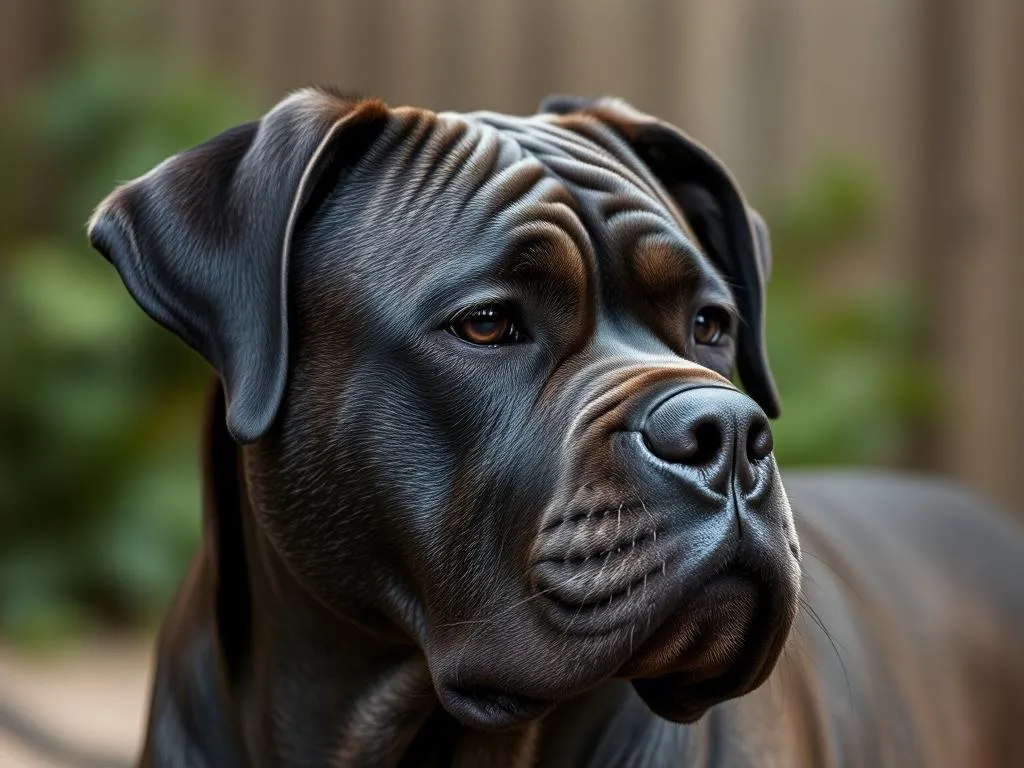
Introduction
The Cane Corso, a majestic breed with a rich history, was originally bred in Italy for guarding and hunting. Known for their muscular build, loyalty, and protective instincts, Cane Corsos have garnered popularity as both companions and working dogs. Their strong presence and affectionate nature make them suitable pets for families that can provide them with the proper training and socialization.
Despite their impressive physical attributes and intelligence, Cane Corsos face unique health challenges that potential owners must understand. Genetic predispositions, lifestyle factors, and environmental influences can impact the health of this breed significantly. Thus, it becomes essential for Cane Corso owners to be well-informed about common health issues, preventive measures, and management strategies to ensure their dog’s longevity and quality of life.
Common Health Issues in Cane Corso
Hip Dysplasia
Hip dysplasia is a hereditary condition where the hip joint doesn’t fit into the hip socket properly. This malformation can lead to arthritis and discomfort for your Cane Corso over time.
Symptoms to Watch For
- Difficulty getting up or lying down
- Decreased activity or reluctance to exercise
- Limping or favoring one leg
- Pain when touching the hip area
Diagnosis Process
Veterinarians typically diagnose hip dysplasia through physical examinations and imaging techniques like X-rays. Early detection is crucial for effective management.
Treatment Options
Treatment for hip dysplasia can involve both surgical and non-surgical approaches:
- Non-Surgical Options: Weight management, physical therapy, and anti-inflammatory medications can help alleviate symptoms and improve mobility.
- Surgical Options: In severe cases, surgical interventions such as hip replacement or femoral head osteotomy may be necessary to restore function and relieve pain.
Bloat (Gastric Dilatation-Volvulus)
Bloat, also known as Gastric Dilatation-Volvulus (GDV), is a life-threatening condition that can affect Cane Corsos. It occurs when the stomach fills with gas and twists upon itself, cutting off blood flow.
Risk Factors and Causes
Bloat is more common in deep-chested breeds like the Cane Corso. Factors such as rapid eating, vigorous exercise after meals, and stress can contribute to the risk.
Symptoms and Emergency Signs
Signs of bloat may include:
- Distended abdomen
- Unsuccessful attempts to vomit
- Excessive drooling
- Restlessness or pacing
Bloat is an emergency situation, and rapid veterinary intervention is critical.
Prevention Strategies
To reduce the risk of bloat, consider the following:
- Feed smaller, more frequent meals.
- Avoid vigorous exercise immediately after eating.
- Use elevated feeding bowls cautiously, as their effectiveness is still debated.
Heart Conditions
Cane Corsos are susceptible to various heart conditions, with dilated cardiomyopathy (DCM) being the most common. This progressive disease affects the heart muscle, impairing its ability to pump blood effectively.
Symptoms and Diagnostics
Signs of heart issues may include:
- Coughing
- Difficulty breathing
- Fatigue or lethargy
- Fainting episodes
Veterinarians can diagnose heart conditions through physical exams, chest X-rays, and echocardiograms.
Treatment Options
Heart conditions often require lifelong management, which may include:
- Medications: To help improve heart function and manage symptoms.
- Lifestyle Changes: Incorporating low-sodium diets and moderate exercise can improve quality of life.
Skin Issues
Cane Corsos can experience various skin problems, including allergies and infections. Their short coat is generally easy to maintain, but they can be prone to irritations and dermatitis.
Symptoms and Identification
Look for symptoms such as:
- Excessive itching or scratching
- Redness or inflammation
- Hair loss or flaky skin
- Unpleasant odor
Recommended Treatments and Preventive Care
- Regular bathing with hypoallergenic shampoos can help manage skin conditions.
- Identifying and avoiding allergens is essential for long-term care.
- Consult your vet for topical treatments or medications if necessary.
Obesity
Obesity is increasingly common in Cane Corsos and can lead to several health complications, including joint problems, diabetes, and heart disease.
Understanding Obesity in Cane Corso
This breed’s natural inclination to gain weight can quickly turn into a health risk if not monitored.
Impact on Overall Health and Lifespan
Being overweight can shorten your Cane Corso’s lifespan and significantly reduce their quality of life.
Tips for Maintaining a Healthy Weight
- Diet: Feed high-quality dog food formulated for large breeds.
- Portion Control: Measure food portions to avoid overeating.
- Exercise: Ensure regular exercise to maintain a healthy weight.
Preventative Health Care
Regular Veterinary Check-ups
Routine veterinary visits are crucial for maintaining your Cane Corso’s health.
Importance of Routine Exams
Regular check-ups allow for early detection of health issues, ensuring timely intervention.
Recommended Vaccination Schedules
Stay on top of vaccinations to protect against common canine diseases. Your veterinarian can provide a customized vaccination schedule based on your dog’s needs.
Nutrition and Diet
Cane Corsos require a balanced diet to support their muscular build and high energy levels.
Overview of Nutritional Needs Specific to Cane Corso
High-quality protein, healthy fats, and essential vitamins and minerals are vital for this breed.
Recommended Dog Food Types and Brands
Look for dog foods that specifically cater to large breeds and are rich in protein. Brands like Orijen, Taste of the Wild, and Blue Buffalo are often recommended.
Importance of Portion Control and Feeding Schedules
Establishing a consistent feeding schedule can help prevent obesity and related health issues.
Exercise and Physical Activity
Regular exercise is essential for maintaining your Cane Corso’s physical and mental health.
Importance of Regular Exercise for Health
Physical activity helps manage weight, strengthens muscles, and prevents behavioral issues.
Recommended Activities for Cane Corso
- Daily Walks: Aim for at least 30-60 minutes of walking each day.
- Playtime: Engage in fetch or tug-of-war to stimulate both their mind and body.
- Training Sessions: Mental exercise through training helps keep their minds sharp.
Signs of Overexertion or Fatigue
Watch for signs of fatigue, such as excessive panting, stumbling, or reluctance to continue exercising.
Grooming and Hygiene
Coat Care
The Cane Corso has a short coat that requires minimal grooming.
Grooming Needs Specific to Cane Corso
Regular brushing once a week can help manage shedding and keep their coat healthy.
Recommended Grooming Tools and Frequency
Use a rubber curry brush to remove loose hair and dirt. Bathing should be done as needed, typically every few months.
Tips for Managing Shedding
Regular brushing and a healthy diet can significantly reduce shedding.
Dental Care
Dental hygiene is often overlooked but is crucial for your Cane Corso’s overall health.
Importance of Dental Hygiene in Dogs
Poor dental health can lead to tooth decay and systemic diseases.
Recommended Dental Care Routine
Brush your dog’s teeth at least two to three times a week using dog-specific toothpaste and toothbrushes.
Signs of Dental Issues to Look For
Look for signs like bad breath, swollen gums, or difficulty chewing.
Ear and Eye Care
Proper ear and eye care are essential for preventing infections.
Importance of Regular Ear Cleaning
Check your Cane Corso’s ears weekly for dirt and debris. Clean them with a vet-recommended solution.
Signs of Ear Infections and Eye Problems
Watch for excessive scratching at the ears, foul odor, redness, or discharge.
Recommended Care Practices
Consult your veterinarian for specific cleaning techniques and frequency based on your dog’s needs.
Recognizing Signs of Illness
Behavioral Changes
Changes in behavior can be the first indicators of health issues.
Common Behavioral Signs That Indicate Health Issues
- Increased aggression or anxiety
- Withdrawal or lack of interest in activities
- Changes in appetite (eating more or less)
Importance of Monitoring Changes in Activity Levels and Habits
Keeping a close eye on your Cane Corso’s behavior can help in early detection of health problems.
Physical Symptoms
Physical signs can provide critical insights into your dog’s health.
Overview of Physical Signs of Illness
Signs such as vomiting, diarrhea, lethargy, or changes in urination can indicate underlying health issues.
When to Seek Veterinary Assistance
If you notice any concerning physical symptoms, seek veterinary care promptly to ensure your dog’s well-being.
Advanced Health Considerations
Genetic Testing
Genetic testing can identify potential health risks before they become serious issues.
Importance of Genetic Testing for Potential Health Issues
Understanding your Cane Corso’s genetic predispositions allows you to make informed decisions about their care.
Recommended Tests for Cane Corso Owners
Common tests include screenings for hip dysplasia, heart conditions, and other hereditary diseases.
Senior Cane Corso Care
As Cane Corsos age, they become more susceptible to various health issues.
Health Issues Prevalent in Older Cane Corso
Senior Cane Corsos may experience arthritis, heart problems, and cognitive decline.
Adjustments in Care as They Age
Modify their diet, exercise, and regular check-ups to accommodate their changing health needs.
Importance of Regular Vet Check-ups for Seniors
Frequent veterinary visits can help catch age-related health issues early, improving your dog’s quality of life.
Conclusion
Understanding the Cane Corso health issues is crucial for any owner committed to providing the best care for their dog. From hip dysplasia to bloat and heart conditions, being aware of these challenges can make a significant difference in your dog’s life. Regular veterinary check-ups, a balanced diet, and proper exercise are vital components of proactive health care.
By prioritizing your Cane Corso’s health and well-being, you contribute to a happier and longer life for your beloved companion.









